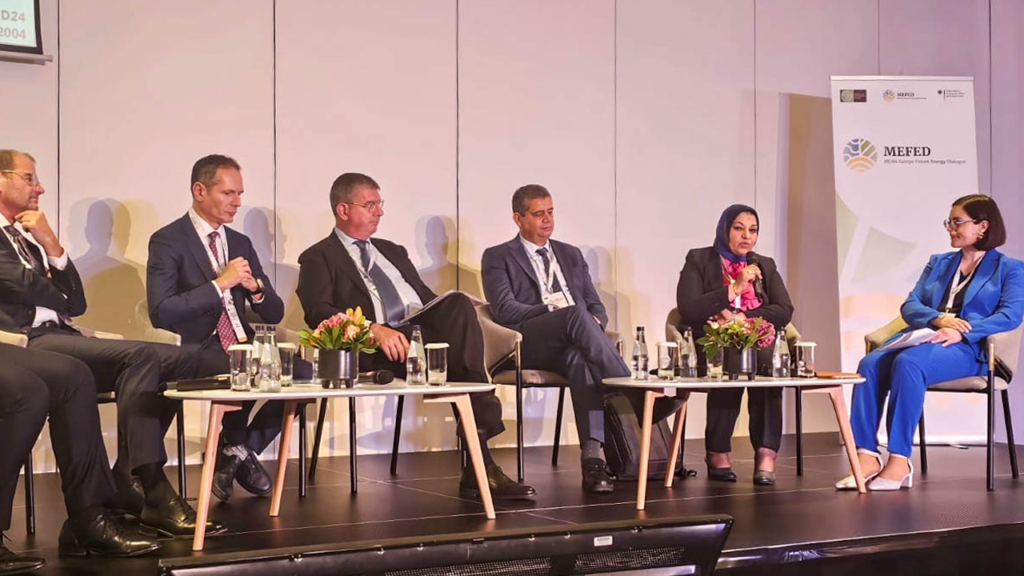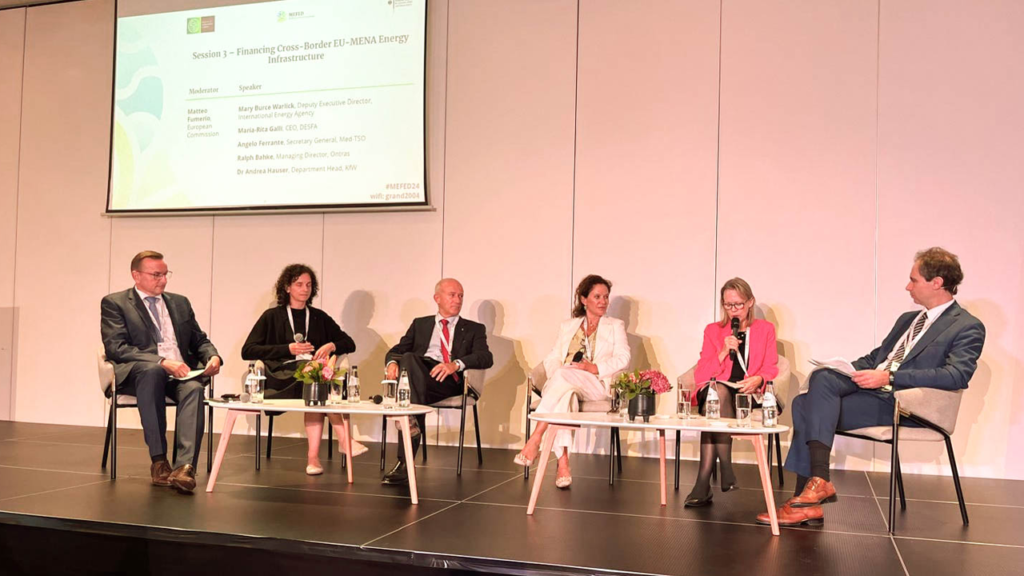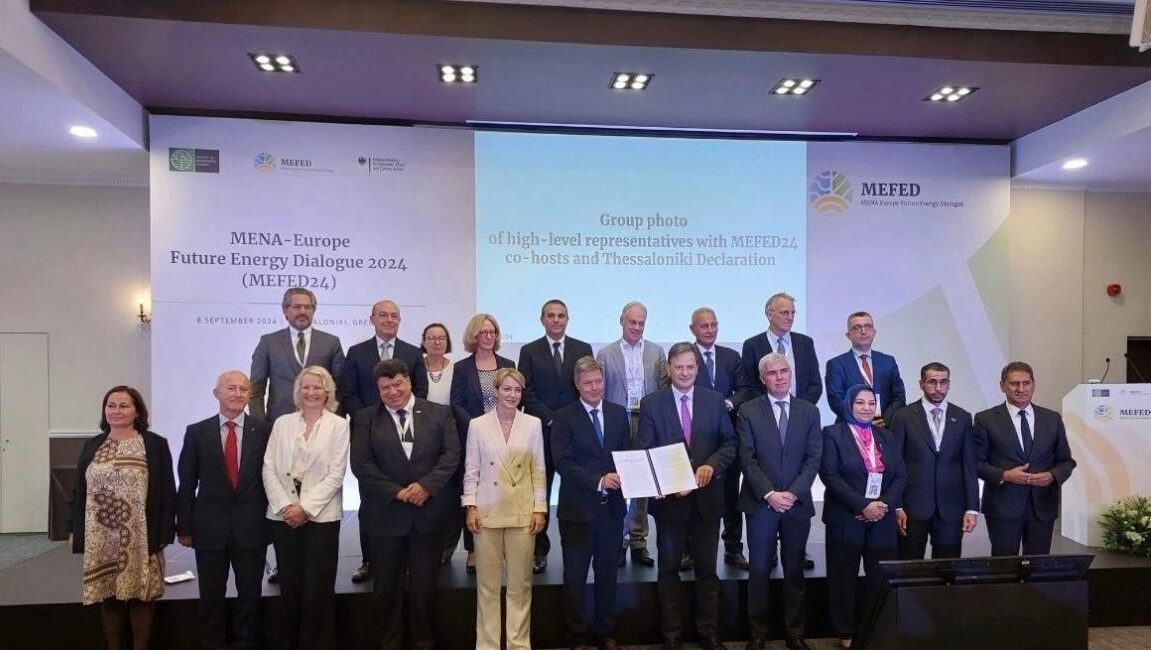Med-TSO President, Eng. Sabah Mashaly and Secretary-General Angelo Ferrante recently participated in the 2024 edition of the MENA Europe Future Energy Dialogue (MEFED), held on 8-9 September in Thessaloniki, Greece. The event was co-hosted by H.E. Theodoros Skylakakis, Greece’s Minister for Energy and Environment, and H.E. Dr Robert Habeck, Germany’s Federal Minister for Economic Affairs and Climate Action.
The event addressed critical discussions on cross-regional energy infrastructure for electrons and molecules, bringing together high-level representatives from the public and private sectors, infrastructure operators, and financial institutions.
As a member of the MEFED24 Advisory Group, Med-TSO is proud to endorse the Thessaloniki Declaration, unveiled during the meeting.
Joint Press Statement MEFED24 Advisory GroupDuring the session on financing Cross-Border EU-MENA energy infrastructure, Secretary-General Ferrante emphasised the importance of investments in regional power system integration and creating a Mediterranean electricity market—a vital step toward achieving carbon neutrality in the region.
Mr Ferrante also highlighted Med-TSO’s ongoing work on promoting the technical interoperability of the Mediterranean Power Systems through Mediterranean-wide network development plans and harmonised rules for interconnected electricity networks. The last Association’s Master Plan of Mediterranean Interconnections, issued in 2022, assessed 19 interconnection projects, representing €12 billion in investments. However, many of these projects are not yet in the TSOs’ pipelines due to significant financial gaps.
Developing financial instruments is essential to support long-term and capital-intensive investments in grids for both North-South and South-South electricity infrastructure. Drawing from EU experience, Med-TSO stressed that only regulated investments could drive the needed grid expansion, emphasizing the necessity for regional-level assessments and solid institutional support.
The vision is clear: an integrated Euro-Mediterranean grid facilitates regional trading areas connected to the EU Internal Electricity Market, benefiting both EU and non-EU countries. However, this requires cooperation on cost allocation and a willingness to align on potentially diverse national interests.



